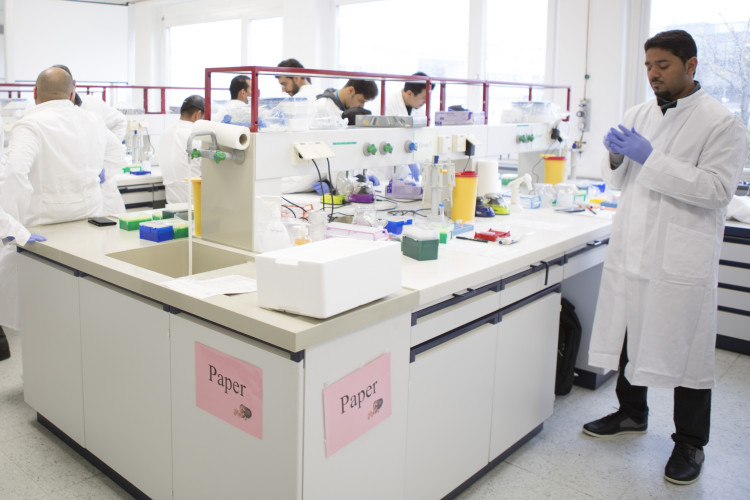The United States announced today a pledge of €1 million to support the modernization of the International Atomic Energy Agency (IAEA) Nuclear Applications Laboratories in Seibersdorf, outside Vienna. These facilities opened their doors in 1962 and play a key role in the peaceful uses of nuclear science and technology to assist countries in areas such as human and animal health, food security and the protection of the environment.
The announcement was made during the first day of the first session of the Preparatory Committee for the 2020 Review Conference of the Parties to the Treaty on the Non-Proliferation of Nuclear Weapons (NPT), taking place May 2–12 in Vienna, Austria. The contribution will go towards the construction of a new Animal Production and Health Laboratory, one of eight laboratories that will be upgraded under the Agency’s Renovation of the Nuclear Applications Laboratories (ReNuAL) and ReNuAL Plus initiatives.
IAEA Director General Yukiya Amano, addressing the Preparatory Committee meeting, said the modernization of the eight IAEA Nuclear Applications Laboratories was proceeding well.
”The laboratories train scientists, support research in human health, food and other areas, and provide analytical services to national laboratories,” Amano said. “I thank donor countries for their generous contributions and I hope that Member States will continue to provide strong support for further work on this important modernization project.”
U.S. Ambassador Robert Wood, the country’s Permanent Representative to the Conference on Disarmament in Geneva, said the IAEA plays a key part in helping countries realize the practical benefits of the NPT.
“I am pleased to announce a U.S. pledge of €1 million to support the IAEA’s project to renovate its Nuclear Applications Laboratories, in addition to the nearly €8.9 million we have provided to date. This ReNuAL project aims to renew the infrastructure needed to sustain the IAEA’s programmes for peaceful uses of nuclear energy. We also urge other IAEA Member States to join us in meeting this year’s ReNuAL Plus fundraising goals.”
“The U.S. pledge brings us halfway to the funding target of €2 million that we need to reach by June to start building this important laboratory on time and to maximize our cost efficiencies, so it is significant both in terms of its size and timing,” said IAEA Deputy Director General Aldo Malavasi, who heads the IAEA’s Department of Nuclear Sciences and Applications.
“The IAEA’s work in helping countries to apply nuclear technologies to quickly detect and control animal diseases posing threats to food and economic security and to health is increasingly in demand,” Malavasi said. “This week, for example, in Seibersdorf the Agency is training 16 veterinary experts from seven Member States in diagnosing Middle East Respiratory Syndrome Coronavirus (MERS-CoV) in camels – a zoonotic respiratory disease that is very dangerous to humans. This contribution is very welcome.”


